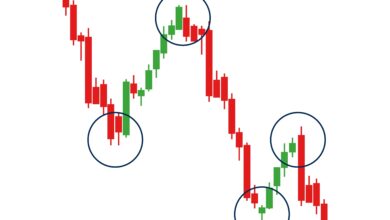Common Forex Trading Mistakes and How to Avoid Them

Introduction:
Forex trading offers immense potential for financial gains, but it also comes with its fair share of risks. Many traders, especially beginners, fall prey to common mistakes that can lead to substantial losses. Understanding these mistakes and learning how to avoid them is crucial for achieving success in the forex market. In this article, we will explore some of the most common forex trading mistakes and provide practical tips on how to steer clear of them.
1. Lack of Proper Education and Research:
One of the biggest mistakes traders make is jumping into forex trading without acquiring the necessary knowledge and skills. Forex trading requires a solid understanding of fundamental and technical analysis, risk management, and market dynamics. Educate yourself through online courses, books, webinars, and reputable educational resources. Conduct thorough research before making any trading decisions to ensure you have a well-informed approach.
2. Overtrading:
Overtrading is a common pitfall among traders who get caught up in the excitement of the market. Making excessive trades can lead to emotional decision-making, poor risk management, and increased transaction costs. Avoid overtrading by developing a disciplined trading plan and sticking to it. Set clear entry and exit criteria based on your analysis and avoid impulsive trades driven by emotions or short-term market fluctuations.
3. Lack of Risk Management:
Failing to implement proper risk management strategies is a grave mistake that can lead to significant losses. Many traders neglect to set stop-loss orders or fail to adhere to them. Always determine your risk tolerance and set appropriate stop-loss levels for each trade. Additionally, consider using trailing stops to protect profits as the trade moves in your favor. Diversify your portfolio and avoid risking a significant portion of your capital on a single trade.
4. Emotional Trading:
Emotions such as fear, greed, and impatience can cloud judgment and lead to poor trading decisions. Emotional trading often results in chasing losses, holding onto losing positions, or prematurely closing winning trades. Develop a disciplined mindset and follow your trading plan without succumbing to emotional impulses. Implementing proper risk-reward ratios and using stop-loss orders can help reduce emotional biases and promote rational decision-making.
5. Ignoring Fundamental Analysis:
While technical analysis is widely used in forex trading, ignoring fundamental analysis can be a costly mistake. Economic indicators, geopolitical events, and central bank policies can significantly impact currency markets. Stay informed about economic news releases, monetary policy decisions, and global events that may influence currency movements. Incorporate fundamental analysis alongside technical analysis to gain a more comprehensive understanding of the market.
6. Lack of Patience and Discipline:
Trading requires patience and discipline. Many traders fall into the trap of chasing quick profits or trading excessively, leading to poor decision-making and unnecessary risks. Stick to your trading plan, exercise patience, and wait for high-probability trading setups. Avoid impulsive trades driven by FOMO (fear of missing out) or short-term market noise. Remember, successful trading is a marathon, not a sprint.
7. Overreliance on Indicators or Systems:
While technical indicators and trading systems can be valuable tools, overreliance on them can be detrimental. Relying solely on indicators without understanding the underlying market dynamics can lead to false signals and poor trade execution. Use indicators as a supplementary tool alongside price action analysis and consider the overall market context. Develop a trading strategy that aligns with your trading style and preferences.
Conclusion:
Avoiding common forex trading mistakes requires education, discipline, and a rational approach. By learning from the experiences of others and being aware of the potential pitfalls, traders can significantly increase their chances of success. Strive for continuous learning, develop a robust trading plan, implement sound risk management strategies, and maintain emotional control. By avoiding these common mistakes, traders can enhance their trading skills and achieve consistent profitability in the forex market.





